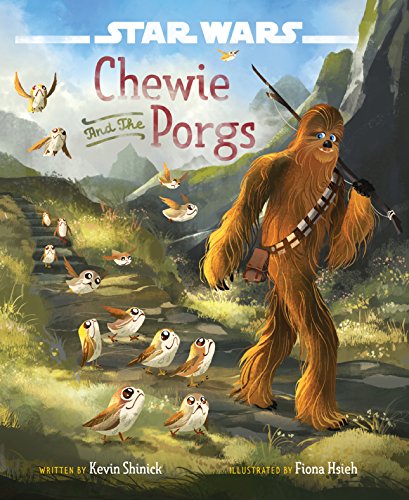(1) YOUNG PEOPLE. James Davis Nicoll asked the crew at Young People Read Old SFF their response to Octavia Butler’s “Bloodchild”. Two of the four readers said it was their first experience with the author. (The others didn’t say one way or the other.)
Octavia E. Butler was one of a small handful of African American SF authors back in the 1970s, an era when SF was often whiter than a crowd of naked albinos holding loaves of Wonder Bread in a snowstorm. Butler’s stories often focused on people doing their best from a position of profound weakness, striving despite slavery, apocalypse or worse. This example of her work won the 1984 Nebula Award for Best Novelette, the 1985 Hugo Award for Best Novelette, the 1985 Locus Award for Best Novelette and the 1985 Science Fiction Chronicle Award for Best Novelette.
Young People Read Old SFF also recently tackled “The Light of Other Days” by Bob Shaw. Some liked it, but Mikayla did not disappoint….
Bob Shaw was born in Northern Ireland. Over the course of the three decades of his career, he won three BSFA awards and was nominated for the Hugo, the Locus, the Campbell, and the Clarke.
The Light of Other Days is an atypical Shaw. It is a classic idea story, a story in which an author tries to show unexpected implications of some new development. Slow glass, a material in which the speed of light is so slow it takes decades for light to pass from one side to the other of a thin sheet, was one of the rare examples of an idea veteran editor John W. Campbell considered actually original at the time of publication. It was shortlisted for the Nebula Award for Best Short Story and for the Hugo Award for Best Short Story.
Of course, just because professionals and fans liked a story half a century ago is no guarantee modern readers will. Let’s see what they thought….
(2) HUNGARIAN BLOGGER. Bence Pintér recommends the new English-language blog of Balázs Farkas, a Hungarian author; especially his post on Black Mirror.
Black Mirror needs to reinvent itself. The sooner, the better.
Don’t get me wrong. The fourth season has cleverly written, beautifully directed episodes throughout, as usual. It’s still the prime science-fiction anthology, and one of the most relevant TV series, even if contemporary science-fiction writers and futurologists already explored most of its ideas. The problem is, the new season didn’t have any new ideas, at all…
Also recommended, his thoughts on the comedy in Get Out —
Last year Get Out was nominated for a Golden Globe in the category of Best Motion Picture – Musical or Comedy. Many consider Get Out one of the best horror films of 2017. I was intrigued for months, but I rarely watch movies nowadays, but I decided to see Get Out for myself and see whether it’s a comedy or a horror. Well, I found out it’s neither, but can be interpreted as both, and it’s really fascinating to see why.
And on the short fiction of Aleister Crowley.
“Do what thou wilt shall be the whole of the Law.”
The interesting thing about Aleister Crowley is that he really believed this. We don’t consider him a fiction writer (at least not primarily), but he went and did it for a while, because he could do whatever and whenever. So he wrote fiction, but only between 1908 and 1922, that’s merely fifteen years from his prolific and incredibly versatile mind. This was an era when he approached the literary world as a critic and writer, although at first quite reluctantly (“I had an instinctive feeling against prose; I had not appreciated its possibilities,” he wrote, later admitting that“the short story is one of the most delicate and powerful forms of expression”). He wasn’t only a writer, but he still made sure that his legacy includes a large collection of miscellaneous prose, now presented in a prestigious (and affordable) Wordsworth edition, titled The Drug and Other Stories.
(3) INSIDE THE SHELL. In The New Yorker, Teddy Wayne tells why “A Storm Trooper Reconsiders His Support for Snoke”.
…Except things started changing when Snoke passed that big tax bill. The very next day, we’re told our pensions are getting cut—which hardly matters, because Storm Troopers have a seventy-five-per-cent fatal occupational-injury rate. (Some from combat, but mostly guys falling into chasms off narrow ship walkways that for some reason don’t have guardrails.)
Sure, the galaxy’s health insurance wasn’t perfect, but at least I got a little subsidy from Vadercare. Snoke repeals the individual mandate and all these Storm Troopers, fresh out of the academy, thinking they’re invincible, go, “Awesome—I’m young and healthy, Han Solo’s dead, screw it.” My premiums suddenly shoot through the roof, so I’m going without it this year and hoping I don’t run into a freaking Jedi Knight. But how am I gonna pay for the infirmary visit when a trespassing Resistance fighter conks me on the head to steal my uniform and gain access to a ship’s inner sanctum, which now seems to happen every other year? And if my arm’s sliced off with a lightsabre, you think my Storm Trooper’s comp will cover the robotic prosthetic?
(4) A FAITHFUL 451. The Hollywood Reporter interviews co-writer, exec producer and director Ramin Bahrani, who assures them “HBO’s ‘Fahrenheit 451’ Will Stay True to Ray Bradbury’s Central Themes”.
Bahrani, who co-wrote the telepic alongside Amir Naderi and reteams with Shannon after he starred in their feature 99 Homes, confessed that he told his agent at one point that he should call HBO and refund the network’s money because he felt that he couldn’t finish the script. He spoke at length about the parallels between Bradbury’s 1953 work and what’s happening in the world today.
“I don’t want to focus so much on [Trump] because I don’t want to excuse the 30 to 40 years prior to that; he’s just an exaggeration of it now,” he said. “I don’t want us to forget what Bradbury said — that we asked for this. We elected [politicians] over many decades, we’re electing this thing in my pocket [pulls out his cellphone]. Between the technological advancements in the last 20 years and politics, Bradbury’s biggest concern about the erosion of culture is now.”
Bahrani said he never had the opportunity to meet with Bradbury before his death but did an extensive amount of research, watching and reading multiple interviews and more. “Bradbury’s novel was set in the future where he was predicting having screens on the wall that you could interact with. Social media and supercomputers like my phone are real now. [The film] is not set in the distant future like Bradbury’s novel but an alternate tomorrow where technology is here right now — like Amazon’s Alexa,” he said. “One of the things in the film is storing knowledge, books in DNA. This exists now. All your drives could be stored 100-fold in DNA. There was no reason to put it in the future; it’s just [set in] a strange tomorrow.”
(5) THE TOLL. Kameron Hurley, who I admire for her unflinchingly transparent posts about her life as a writer, tells a heartbreaking story about her experiences in 2017 — “The Year I Drowned My Emotions”.
Depression is a complex state of being. I know we want to try and pretend it’s easy. Just pop a pill, increase your meds, try new meds, find something that works! But there’s also depression caused by external forces, and that’s the sort of depression that you can paint over with pills, sure, but the root of it is still there, like painting over a crack in your wall.
I was already feeling overwhelmed and deflated in the months leading up to the election. I was struggling with the reality that I’d produced three books in a year but still had to function at a day job, and the relentless treadmill of publishing was still going, without the sort of reward I needed in order to maintain my sanity. I’ve talked before about how writing all those books and then promoting books and having a weird dude-bro day job (at the time) conspired to murder me. What we don’t acknowledge is that when you experience that kind of breakdown followed by grief and disappointment, you can’t just… get back up like nothing happened.
(6) HADLEY OBIT. At ComicMix, Glen Hauman reports “Cinamon Hadley, The Girl Who Was Death, Has Died”.
Cinamon Hadley, whose appearance inspired the look of Death in the Sandman comic series, passed away today according to Sandman co-creator Neil Gaiman.
The body-piercer and goth icon whose portrait was immortalized as the second eldest in a family of anthropomorphized forces called the Endless, Hadley was described as extremely tall, extraordinarily thin, with bone-white skin, impeccable make-up and thin, black hair.
Rest in Peace, or head off to your next adventure, Cinamon Hadley. You gave Death of the Endless her face and her smile. https://t.co/lsikh0BHCW
— Neil Gaiman (@neilhimself) January 6, 2018
(7) TODAY’S BIRTHDAY BOY
- Born January 11, 1937 — Felix Anthony Silla, known for his role as the costumed character of “Cousin Itt” on television’s The Addams Family.
(8) ADVENTURE OR COOKBOOK? Having seen the movie, this one has me a little worried – Star Wars: The Last Jedi: Chewie and the Porgs:
From Emmy award-winning writer Kevin Shinick comes a lovable tale of Chewbacca the Wookiee and the pesky porgs of Ahch-To Island. Featuring adorable illustrations by artist Fiona Hsieh.
(9) WATCHWORTHY. In “Consumption: 2017”, John Harden makes “a list of everything I watched in 2017 plus my very excellent and totally correct opinions on same.”
I make this list every year, for fun and as a reference. As always, it only reflects things seen for the first time. “POLTERGEIST on TV, 14th viewing” doesn’t make the list. Nor do films not viewed in their entirety, for example, Guy Ritchie’s THE MAN FROM U.N.C.L.E, which got ejected from the Blu-Ray player after 15 minutes. I’d never seen Henry Cavill in anything before but he seems to emit some kind of anti-charisma particle.
I didn’t bother making a numbered best-of list this year. But if I had, LOGAN would be at the top. It’s perfect. Damn you James Mangold, for making me cry at your Wolverine movie.
(10) SLOW DOWN, YOU MOVE TOO FAST. How fast is the universe expanding? “‘Serious gap’ in cosmic expansion rate hints at new physics”.
To calculate the Hubble Constant, Prof Riess and others use the “cosmic ladder” approach, which relies on known quantities – so-called “standard candles” – such as the brightness of certain types of supernova to calibrate distances across space.
However, a different approach uses a combination of the afterglow of the Big Bang, known as the Cosmic Microwave Background (CMB), as measured by the Planck spacecraft and a cosmological model known as Lambda-CDM.
The Hubble Constant obtained using these data is 66.9 kilometres per second per megaparsec. (A megaparsec is 3.26 million light-years, so it follows that cosmic expansion increases by 66.9km/second for every 3.26 million light-years we look further out into space).
The gap between the two is now at a confidence level of about 3.4 sigma. The sigma level describes the probability that a particular finding is not down to chance. For example, three sigma is often described as the equivalent of repeatedly tossing a coin and getting nine heads in a row.
A level of five sigma is usually considered the threshold for claiming a discovery.
However, Prof Riess said that at the three sigma level “this starts to get pretty serious I would say”.
(11) EYES IN THE SKY. “Finnish start-up ICEYE’s radical space radar solution” — swarms of small cheap satellites for continuous coverage.
Big things sometimes come in small packages. That’s the hope of Finnish start-up ICEYE, who are about to see their first satellite go into orbit.
The young company are making waves because they’re attempting what no-one has dared try before; indeed, what many people had previously said was impossible.
ICEYE aim to launch a constellation of sub-100kg radar micro-satellites that will circle the Earth, returning multiple pictures daily of any spot on the globe, whether it’s dark or light, good weather or bad.
The special capability of synthetic-aperture radar (SAR) satellites to sense the planet’s surface whatever the conditions is loved by government and the military, obviously – and they make sure they always have access to this kind of imagery.
But here’s the rub: the spacecraft that gather this sort of data have traditionally been big, power-hungry beasts.
(12) ANCIENT WINGS. BBC invites you to “Meet the butterflies from 200 million years ago”. They evolved nectar-suckers before there were flowers.
Newly discovered fossils show that moths and butterflies have been on the planet for at least 200 million years.
Scientists found fossilised butterfly scales the size of a speck of dust inside ancient rock from Germany.
The find pushes back the date for the origins of the Lepidoptera, one of the most prized and studied insect groups.
… “These finds push back the evolution of this group with proboscises – with a tongue – by about 70 million years,” said Dr van de Schootbrugge.
“Our finds show that the group that was supposed to co-evolve with flowers is actually much older.”
(13) REEL STINKERS. ComicMix’s Arthur Martinez-Tebbel looks back on the worst of the year in “Box Office Democracy: Bottom 6 Movies of 2017”. At the very bottom is —
- Valerian and the City of a Thousand Planets
If this was just about wasted potential, Valerian would easily be on the top of this list. There are five worse movies this year but none of them have a fraction of the visual artistry displayed here by Luc Besson. Valerian has some of the best design I’ve seen in a movie all year and two of the most inventive chase sequences maybe ever. It also features a terrible script that meanders forever over trivial nothing and merrily skips past dense plot without a moment for inspection. I loved watching the action but I never really understood why any of it was going on. Toss on top some of the worst chemistry I’ve ever seen between an on-screen couple (and honestly maybe Dane DeHaan isn’t ready to be a leading man) and this is an unpleasant movie to watch at any volume above mute.
(14) BURROWER DOWN UNDER. Introducing Vulcanops jennyworthyae – “Giant bat: Remains of extinct burrowing bat found in New Zealand”
The fossilised remains of a giant burrowing bat that lived in New Zealand millions of years ago have been found on the country’s South Island.
The teeth and bones of the extinct bat were found to be three times the size of an average modern bat.
The bat, which weighed around 40g (1.41oz), not only flew but also scurried about on all fours looking for food.
The remains were recovered from ancient sediments near the town of St Bathans.
(15) ALTERED CARBON. Netflix has released Altered Carbon Official Trailer # 3.
In the distant future, human consciousness can be digitized and downloaded into different bodies. Brought back to life after 250 years by Laurens Bancroft (James Purefoy) the richest man on Earth, ex-Envoy soldier Takeshi Kovacs (Joel Kinnaman / Will Yun Lee) must solve Bancroft’s attempted murder for the chance to live again in a world he doesn’t recognize. Altered Carbon debuts exclusively on Netflix February 2nd, 2018.
(16) SCORCHED EARTH. The Official Trailer –
The planet has suffered an environmental collapse; the air became dangerous to breathe, the water became toxic, and billions of people died. Generations later, mankind has finally re-established a rudimentary society, in an attempt to pick up the pieces that continue to blister in the sun. Attica Gage (Gina Carano) is a bounty hunter with a chance at the bounty of a lifetime: to bring down the ruthless outlaw, Elijah Jackson. Gage infiltrates Jackson’s gang, and everything is going to plan until she meets a slave girl who reminds her of her dead sister. With her loyalty to only herself now tested, Gage learns that there might be more to life than just survival.
[Thanks to Michael J. Walsh, JJ, John King Tarpinian, Mark Hepworth, Martin Morse Wooster, Carl Slaughter, Cat Eldridge, and Andrew Porter for some of these stories. Title credit goes to File 770 contributing editor of the day Ingvar.]



